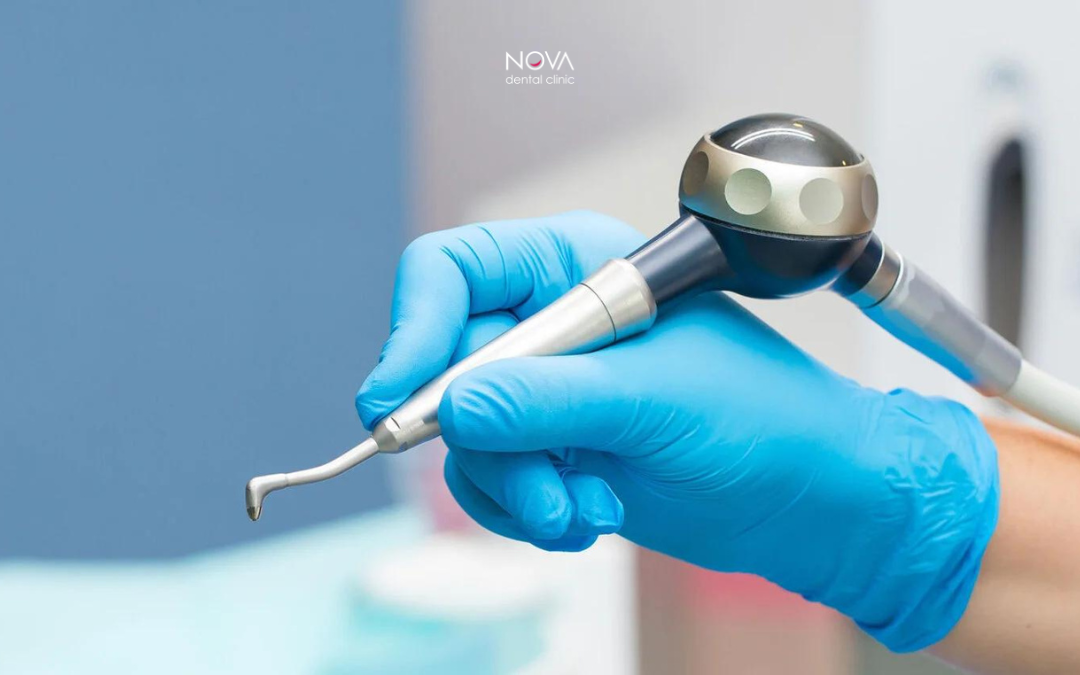The improvement in living standards and greater public awareness of oral health have led an increasing number of our patients to embrace therapies aimed at preserving as many of their teeth as possible. However, when advanced cavities and periodontal disease are left untreated, tooth loss and the need for complete dentures become inevitable. To reassure you that losing all your teeth doesn’t necessarily mean a decline in your quality of life, we’ll explain everything in the text below.
Losing all your teeth: How to cope?
If you are concerned about how you’re going to cope with the loss of all your teeth, rest assured that you’re not alone. Realizing that the teeth you were born with couldn’t be preserved, and that you’ll need to wear the “dreaded” complete dentures, can often feel discouraging. Difficulty eating, avoiding your favorite foods because you can’t chew them, struggling to adapt to the sensation of a foreign object in your mouth, and the instability of lower dentures can significantly impact your quality of life.
Long-term use of complete dentures and prolonged toothlessness often result in jawbone loss, making it increasingly difficult or even impossible to create functional new dentures. These challenges inspired dentists and scientists to develop a therapeutic solution that has brought relief to many patients: Implant-supported dentures. This type of prosthesis offers the feeling of wearing a fixed dental restoration.
What are implant-supported dentures?
Implant-supported dentures are a treatment option for patients with completely edentulous jaws. This type of prosthesis is secured to dental implants placed in the jawbone using attachments such as locators or bars. Typically, 2 to 4 dental implants are required to stabilize the denture during chewing and speaking.
This prosthetic solution addresses the main issue of traditional complete dentures, which is their poor retention and instability.

Advantages of implant-supported dentures
The primary advantage of implant-supported dentures is their significantly improved stability compared to traditional dentures. This difference is particularly noticeable in the lower jaw, where the strong forces of cheek muscles, the tongue, and the floor of the mouth can lift traditional dentures off their base, causing discomfort and anxiety during eating and speaking.
Implant-supported dentures can be easily removed by the patient, making oral hygiene maintenance simple. Over time, as the gums recede and bone resorbs due to long-term denture wear, these prostheses can be easily repaired by taking new impressions and relining the denture.
The process of creating implant-supported dentures
The first phase of creating implant-supported dentures involves placing 2 to 4 implants into the jawbone. A waiting period of 3 to 6 months follows to allow for osseointegration (the fusion of the implants with the surrounding bone). During this time, patients receive a temporary denture or have their old denture adjusted.
In the second phase, once the implants have fused with the bone, the implants are uncovered, and special screws, called gingiva formers, are inserted to shape the gum tissue around the implants. After the implants are placed, a waiting period of up to one month is necessary for the gums to shape around the implants according to the type of prosthetic work to be created.
In the third phase, impressions are taken to create the implant-supported dentures. The prosthesis is connected to the implants in the jawbone using attachments such as locators or bars. The placement of the denture is accompanied by a distinctive “click” as the attachments lock into place.
The final denture is delivered to the patient within 10 days of taking impressions.
To conclude!
Implant-supported dentures are the best solution for edentulous patients seeking dentures with excellent retention. This treatment resolves issues of instability and denture movement during chewing, speaking, and smiling, significantly improving the patient’s ability to eat. Maintaining the prosthesis and oral hygiene is significantly simplified, and regular check-ups are recommended to professionally clean the dentures and monitor the condition of the implants and the surrounding soft tissues.
Complete tooth loss is not a reason to live with difficulties. If you want to learn more about this type of prosthetic restoration that improves your quality of life, schedule an appointment at Nova Dental Clinic!a poteškoćama. Ukoliko vas zanima više o ovoj vrsti protetske nadoknade koja unaprijeđuje kvalitet života, naručite se na pregled u Nova Dental Clinic!











